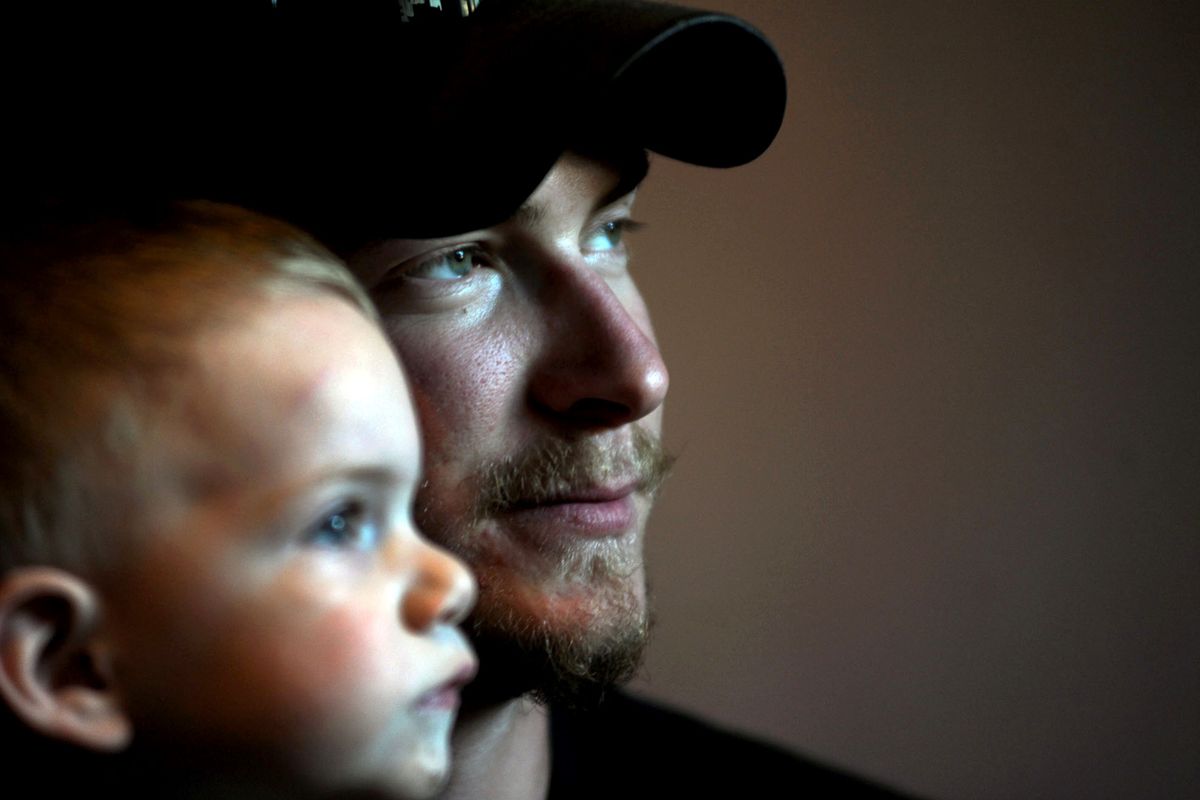Enlisting support
Five years after they joined the Marines, one of the Shipp twins is home and thankful for help from family and veterans programs

Five years ago, fraternal twin brothers from Hauser Lake realized their lifelong dream of enlisting in the U.S. Marines. They were eager to “see action” in Iraq or Afghanistan and defend their country.
The Spokesman-Review followed Robert and Matthew Shipp as they graduated from high school, went through the rigors of boot camp and deployed to the Middle East. They had longed to be Marines since they were boys, and the wars that erupted in the wake of the 9/11 terrorist attacks gave them the combat experiences they craved.
On what Robert calls “the happiest day of our deployment,” the twins found themselves together in Afghanistan, with Matthew’s battalion providing support to Robert’s during counterinsurgency operations.
Now the 23-year-old brothers’ paths have diverged.
Robert came home from Afghanistan with post-traumatic stress disorder caused by experiences he says he’d rather not discuss. He’s applying to the Wounded Warrior Project, a Florida-based nonprofit that provides veterans of the conflicts in Iraq and Afghanistan with education, counseling and job training, with a goal of setting them on a new course in life.
Robert served on an amphibious assault ship and in the Kuwait desert before deploying to Afghanistan. He attempted to re-enlist after his first four years but was barred by a military doctor due to physical injuries and PTSD. He’s now living in Rathdrum, Idaho, with his wife, Dusty, and their 2-year-old son, Hunter, and working for a company that restores homes following water, fire or mold damage.
Matthew, meanwhile, served in Iraq and Afghanistan, then moved on to security detail at Guantanamo Bay, Cuba. He re-enlisted for four more years and is teaching other Marines marksmanship at a base in Chesapeake, Va. He’s applying to be an instructor in “advanced urban combat” and “close quarters battle,” which he said is like the “Marine Corps SWAT team.” But he’d also like to serve another tour in the Middle East.
Of their meeting up in Afghanistan in November 2009, Matthew says, “We were able to talk about everything and kind of help each other out. It was a very proud day. I just can’t explain how happy I was when I was able to see him.”
Robert was injured while on patrol in Afghanistan; carrying 100 pounds of gear, he fell 10 feet into a well and suffered compression fractures in his lower spine, along with knee and ankle injuries. He’s been to a specialist in Seattle and also receives treatment at Spokane’s VA hospital. He attends counseling there and at The Vet Center in Spokane.
Robert said he’s fortunate to have a family network for support, including his parents, Dennis and Leslee, in Hauser Lake. His wife has been “really strong,” he said, and being a dad is “the greatest feeling and the greatest opportunity. You learn something new every day and you learn something from him every day. No matter how (bad) of a day you had, you come home, and he’ll make it better.”
If Robert is accepted by the Wounded Warrior Project, he and his family will move to Jacksonville, Fla., for a year. Funded almost entirely by private and in-kind donations, the nonprofit provides free services to help veterans heal and become productive members of society.
Robert has already attended Project Odyssey, a program of the Wounded Warrior Project, in Colorado. For five days, he participated in group therapy sessions, but also went whitewater rafting and fly-fishing – “kind of teaching you how to have fun again,” he said.
“It kind of makes you feel like you’re not the only one with those problems,” Robert said. “There’s days when you just don’t want to do anything. It’s really hard on the family, too. They have to be strong.”
While in combat, he said, Marines live with a specific mindset every day. “You live that life so long, then you come back … and everybody here is not out to get you. When you change your lifestyle again, it’s not easy to come back from it.”
Matthew said he understands what his brother is going through. Marines in combat never let their guard down. Not until they return to civilian life does the effect of that stress show up, he said.
“It’s not apparent because you know what you’re doing day in, day out, and it’s your job,” he said. “It’s not until your mind and body slow down that … the issues show to others who can see changes and differences. To other Marines, it’s normal.”
When the twins departed for the Marines, both were determined to see action. Now Matthew advises younger Marines that they don’t want that. “Everybody wants to see it, and when you do, it’s like, wow. You don’t want anyone else to see that or go through that,” he said.
The twins inspired their younger brother, C.J., 19, to enlist in the U.S. Air Force. He now serves in Japan. Recently, C.J. Shipp got a tattoo on his left shoulder that says “Brothers in Arms” across the top of Air Force and Marine flags. Below that are the three brothers’ names.
“Now that I’m in the military,” said C.J., “we’re brothers in arms as well.”
At the 10th anniversary of the Sept. 11 terrorist attacks, Matthew and Robert Shipp have similar messages for the country:
“Continue to stand by the troops, the men and women who deploy and are serving our country,” said Matthew. “Don’t forget what happened on 9/11 and remember the families who are suffering. It’s important to remember that and to remember why America’s free.”
Robert encouraged people to fly the American flag outside their homes and to remember its significance.
“Don’t just get all patriotic around Sept. 11,” he said. “If you’re going to support your country, do it all year long.”